What do bonds, inflation and fiscal policy mean? Cost of living crisis terms and definitions explained
and live on Freeview channel 276
2022 has seen the biggest focus on the UK cost of living for decades. With inflation soaring to 40-year highs and real-terms wages falling by a record amount, people up and down the country have been watching every pound they spend.
Since Liz Truss became Prime Minister in September, attention has shifted to the health of the UK economy. Chancellor of the Exchequer Kwasi Kwarteng’s mini budget led to a record tumble in the value of the pound and almost caused a crash in debt markets.
Advertisement
Hide AdAdvertisement
Hide AdThese events have thrown up economic terms whose meanings are not always entirely clear. It sometimes makes understanding the current situation a bit of a challenge.
So, to help, NationalWorld has compiled a glossary of some of the key words and phrases that have surfaced in recent months.
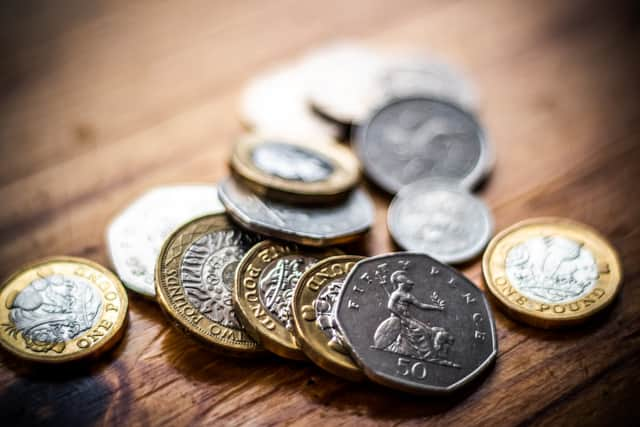

- Bank of England
The Bank of England is an institution most people have heard of, but whose role many people may not be familiar with. The Bank is a public body that is completely independent from the government.
It is basically in charge of the UK’s monetary policy - i.e. everything to do with the value of pound sterling - as well as regulating and setting the goalposts for financial markets.


Advertisement
Hide AdAdvertisement
Hide AdOne of its key roles is to keep inflation to around 2% - a level economists deem to be healthy for the UK economy. It can change the level of inflation through interest rates, which it directly influences through its ‘base rate’.
This mechanism basically determines how cheap or expensive it is to borrow money. So, it has a key role in how high mortgage rates are, and how much the economy can grow by.
- Bonds (also known as gilts)
When we talk about government borrowing or the national debt, what we are really talking about are bonds (or gilts). These are assets investors buy from the government to allow it to raise extra money on top of what it gets from the public and businesses via taxes.
When investors buy bonds, the government pledges to pay them back every year over a certain period of time (often decades) with interest on top. Many of these bond buyers tend to be financial institutions, like pension funds, which want a portfolio of low risk investments.
Advertisement
Hide AdAdvertisement
Hide AdSince the Chancellor’s mini budget, these investments have become seen as more high risk because the value of them has dropped. It has led to higher bond yields - i.e. what investors get in return for holding the bond, which means borrowing has become more expensive for the government.
- Budget deficit
In more usual times, the Chancellor of the Exchequer makes an annual speech in Parliament detailing the government’s tax and spend plans for the coming year. More often than not, there is less taxation than government spending.
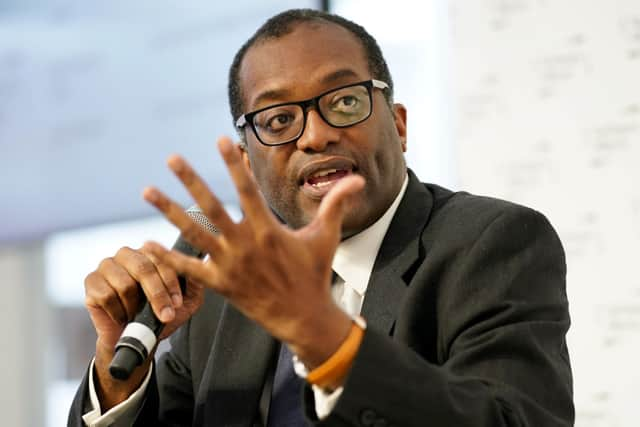

This is known as a budget deficit, which requires the government to borrow money to bridge the gap between the cash it has and the cash it needs. If it is cheap to borrow money and the economy is not under pressure from inflation, borrowing can be a useful way of creating economic growth and prosperity that ultimately pays for itself.
But borrowing without a longer-term economic plan - as Kwasi Kwarteng has effectively done with his mini budget - has not only made borrowing more expensive, but has also created major economic uncertainty.
- Consumer Price Index (CPI)
Advertisement
Hide AdAdvertisement
Hide AdThe UK’s official measure of inflation - i.e. how valuable the pound is - it shows us how much the cost of everyday goods and services are going up (or, sometimes, going down).
It is calculated by the Office for National Statistics (ONS) every month. The UK’s official statistics body measures it by taking a typical ‘shopping basket’, recording how prices within that basket have changed and then weighting it so more everyday items (e.g. bread) have a greater bearing on the overall rate of inflation than luxuries (e.g. smartwatches).
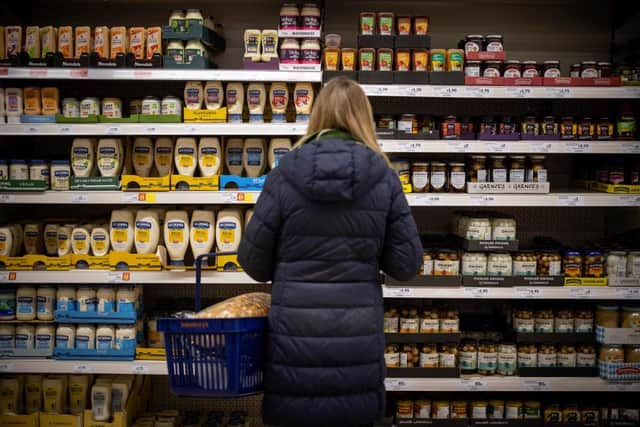

The headline figure coming out of this process is the percentage difference between the latest figures and those from the same month in the previous year. This comparison provides a barometer for how much the cost of living has increased or decreased over that period.
- Cost of living
The phrase ‘cost of living’ has become one of the most-used terms of the year. It has become a catch-all term for how expensive it is to afford to live in the UK at the moment.
Advertisement
Hide AdAdvertisement
Hide AdWe are in a cost of living ‘crisis’ because inflation - i.e. price rises - is close to 40-year highs, while wages have fallen by a record amount in real-terms. It all means the pounds in our pockets have much less purchasing power than they did last year, so it is harder for people to afford key items or pay for vital services.
- Fiscal
Kwasi Kwarteng’s mini budget was described as a fiscal event. The tax cuts the Chancellor announced were part of his fiscal policy. But what does fiscal mean?
Basically, anything that’s fiscal is connected to public money, i.e. the cash the government raises through taxes and spends on public services and investments. Anything that is ‘monetary’ is related to Bank of England policy.
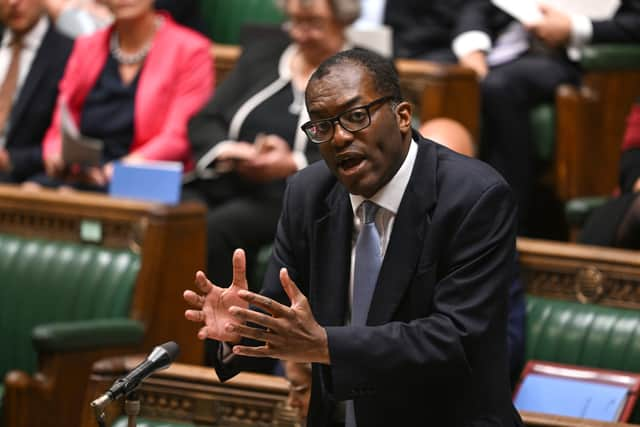

- Index-linked
If something is index-linked, it essentially means it is inflation proof. Indexes are usually calculated to show the rate of inflation or (more rarely) deflation in a specific sector or part of the economy.
Advertisement
Hide AdAdvertisement
Hide AdDepending on which index the asset or payment is linked to - usually one of the Consumer Price Index (CPI) or Retail Price Index (RPI) - it will rise in line with that index as and when it changes.
- Inflation
Inflation is a term that describes the erosion of the value of a currency - in the UK’s case, pound sterling. If inflation is at a high level, as it is now, it means our money gives us less spending power compared to a previous point in time (usually a year ago).
When inflation is much lower, economists think it is a good thing because it encourages people to spend money today to avoid paying more tomorrow. The theory is that this dynamic allows the economy to grow. The Bank of England has a target of keeping inflation at 2%.
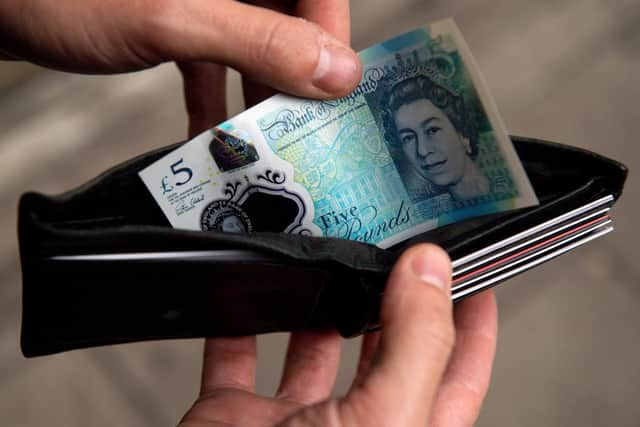

UK inflation is most comprehensively measured by the Consumer Price Index (CPI), which shows how the average prices of goods and services have grown. This is calculated by the Office for National Statistics (ONS) every month.
Advertisement
Hide AdAdvertisement
Hide AdHowever, historical measure the Retail Price Index (RPI) is still calculated and is used to determine the price of some services, like train tickets and mobile phone contracts.
- Interest rate
Interest rates govern how cheap or expensive it is to borrow money. In essence, given the value of the pound is usually being eroded by inflation to some extent, interest is used by lenders as a way of maintaining the value of the loan.
They are also used to safeguard the lender’s investment if the loan is risky. For example, you’re likely to find borrowing more expensive if you have a poor credit score.
The Bank of England plays a major role in influencing the movement of interest rates as one of its main roles is to shore up the value of the UK’s currency pound sterling.
- Quantitative easing (QE)
Advertisement
Hide AdAdvertisement
Hide AdOver the past 12 years, with the UK economy growing slowly, the Bank of England has sought to boost activity through QE. Also known as ‘money printing’, it sees the central bank buy up government and private sector bonds to inject money into the financial system.
By doing so, the theory goes that the process lowers interest rates thus making it easier to borrow money. However, the big criticism of the policy is that the money it generates gravitates towards those who are already wealthy - or are at least better off than the average person. For example, it shores up house prices and shares.
- Recession
These events occur when a country’s economy has two consecutive quarters where economic growth has declined. They tend to be bad news for the economy because they indicate that the private sector is getting smaller.


Given most taxation is raised from work-related taxes - e.g. income tax, national insurance, and corporation tax - it means the government is likely to raise less money. It also means unemployment is likely to rise as businesses tend to invest less in their operations and halt expansion.
- Retail Price Index (RPI)
Advertisement
Hide AdAdvertisement
Hide AdAnother measure of inflation, RPI used to be the official yardstick until the CPI took precedence in 1996. As well as a basket of goods and services, the RPI includes housing costs that the CPI doesn’t, e.g. council tax and mortgage interest payments.
Due to these additional inputs, the RPI tends to track higher than the CPI. It is still calculated by the ONS because it is used to determine the price of goods and services like train tickets and mobile phone contracts.
- Treasury
The Treasury is the government department in charge of the UK’s public finances. Officially, it is controlled by the Prime Minister - AKA the ‘First Lord of the Treasury’. But responsibility for its running is held by the Chancellor of the Exchequer.
The Chancellor - currently Kwasi Kwarteng - sets out taxation rates, government spending, the budgets of other government departments, and the short, medium and long-term strategies for the UK economy.
Comment Guidelines
National World encourages reader discussion on our stories. User feedback, insights and back-and-forth exchanges add a rich layer of context to reporting. Please review our Community Guidelines before commenting.
